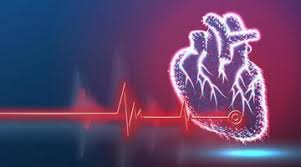5 Things You MUST Know about Epstein-Barr Virus (EBV)
5 Things You MUST Know about Epstein-Barr Virus (EBV)
Epstein-Barr virus (EBV) is a herpes virus that is very common and affects over 90% of people worldwide. Here are the five things you must know about EBV:
EBV is primarily spread through close contact: EBV is primarily spread through close contact with saliva, such as kissing or sharing utensils. It can also be spread through blood transfusions, organ transplants, and sexual contact.
EBV is the cause of mononucleosis: EBV is the cause of mononucleosis, also known as "mono." Mono is a viral illness that causes fatigue, sore throat, fever, and swollen glands. Mono is most commonly diagnosed in young adults, but it can affect people of any age.
EBV is linked to several types of cancer: EBV has been linked to several types of cancer, including Burkitt's lymphoma, Hodgkin's lymphoma, and nasopharyngeal carcinoma. In addition, EBV has been linked to some cases of multiple sclerosis, autoimmune diseases, and chronic fatigue syndrome.
Most people with EBV are asymptomatic: Most people who are infected with EBV do not show any symptoms. In fact, many people are unaware that they have been infected. EBV typically causes symptoms when the immune system is weakened, such as during times of stress or illness.
There is no cure for EBV: There is currently no cure for EBV. Treatment for mono typically involves rest, hydration, and over-the-counter pain relievers. In some cases, antibiotics may be prescribed to treat secondary infections.
In conclusion, EBV is a very common virus that affects over 90% of people worldwide. While most people with EBV are asymptomatic, it can cause mono and is linked to several types of cancer. There is currently no cure for EBV, but treatment typically involves rest, hydration, and over-the-counter pain relievers. If you have concerns about EBV, it's best to talk to your healthcare provider.



Comments
Post a Comment